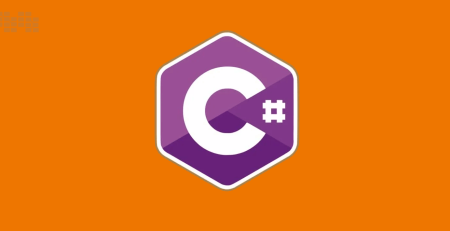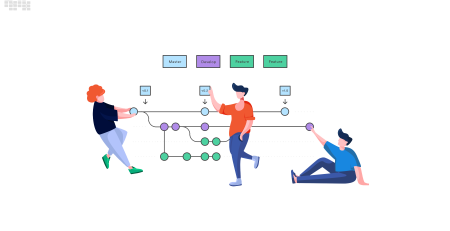How to Prepare for Your First Hackathon?
Your first hackathon could be one of those experiences that will get you excited about it. Hackathons are very useful events for both experienced developers and newcomers passionate about technologies as they allow us test our knowledge and work together in teams solving actual issues. Nevertheless, it is important to be prepared properly and have a plan for achieving success at the hackathon. In this complete guide, we will help you on how to choose an appropriate hackathon and develop a successful project.
Section 1: Choosing the Right Hackathon
However, when it comes to the hackathon business, one size is never enough. Therefore it is important to select the proper hackathon, which matches with your interest, capability, as well as aim. The major points to guide you when choosing a hackathon to attend as a beginner and also, Section 1 in this article will touch on that.
1.1. Research Different Hackathons
The first step in preparing for your first hackathon is to research and explore the various hackathons available to you. Consider the following:
- Local vs. Global: Decide whether you want to participate in a local, regional, or global hackathon. Local events might have a smaller pool of participants and sponsors, while global ones offer a broader audience and often larger prizes.
- Themes and Topics: Each hackathon typically has a theme or specific topics that participants must address in their projects. Look for hackathons whose themes align with your interests. For example, some might focus on healthcare, sustainability, education, or fintech.
- Organizers: Investigate who is organizing the hackathon. Well-established hackathons with reputable organizers are often better structured and more reliable.
- Past Events: Check if the hackathon has a history of hosting successful events. This can be an indicator of how well-organized and rewarding the experience might be.
1.2. Read Reviews and Testimonials
Look for reviews and testimonials from previous participants to have a better understanding of the entire experience of the hackathon. Social media, internet discussion boards, and the official hackathon website are good places to get this information. You may gain insight into the event’s overall environment, mentor quality, and organization by reading through the feedback left by past attendees.
1.3. Consider Your Level of Expertise
Hackathons come in all flavors, from beginner-friendly to highly competitive events. It’s essential to evaluate your own skills and experience when choosing a hackathon:
- If you’re a beginner, look for hackathons with a track record of welcoming first-time participants. These events often provide mentorship and support to help you get started.
- If you’re an experienced developer, you might be more comfortable in hackathons with a competitive edge, where you can challenge your skills and compete against other seasoned participants.
1.4. Verify Prizes and Recognition
While the primary goal of a hackathon is often the experience and learning, it’s also motivating to know that there are prizes and recognition available. Consider the following:
- Prizes: Find out what the hackathon offers in terms of prizes, whether they are in the form of cash, gadgets, scholarships, or job opportunities.
- Recognition: Some hackathons provide recognition to the winning teams, such as awards, certificates, or media coverage. This can be an excellent addition to your portfolio.
- Networking Opportunities: Hackathons are not just about prizes. They offer unique networking opportunities that can lead to job offers, collaborations, and connections within the tech industry.
With due diligence, you can deliberate on these variables, and make an informed decision as far as choosing a suitable hackathon is concerned. This is the first step in preparing the stage of a fruitful and enjoyable hackathon. So for future reference we’ll see with what to start first a team, practice, and eventually be among winners or have maximized profits out of a hackathon.
Section 2: Building Your Team
One of the key tasks you will handle while getting ready for your first hackathon is choosing your team members. In section two, we will lead you through the making of excellent team with high chance to survive the hackathon.
2.1. Leverage Your Network
Building an effective team starts with leveraging your network to identify potential teammates. Here are some steps to consider:
- Friends and Colleagues: Start by reaching out to friends, classmates, or colleagues who share your interest in the hackathon’s theme. Working with people you already know can make communication and collaboration more comfortable.
- Online Communities: Join online communities related to the hackathon theme or technology stack. These communities can be great places to find like-minded individuals who are also interested in participating.
- Social Media: Use social media platforms to connect with potential teammates. Hackathon organizers often create social media groups or pages where participants can connect and form teams.
- University or Work Contacts: If you’re a student, consider collaborating with peers from your university. If you’re a professional, reach out to colleagues who might be interested in participating.
2.2. Seek Diversity
A successful hackathon team is one that possesses diverse skills and expertise. This diversity can be a tremendous asset in tackling various aspects of the project. Here’s how to ensure your team is well-rounded:
- Coding and Programming Skills: Look for team members who are proficient in different programming languages, frameworks, and technologies. Diverse technical skills can help you cover a wide range of project requirements.
- Design and User Experience (UX): A team member with design skills can help create an appealing and user-friendly interface for your project, enhancing its overall presentation and functionality.
- Project Management and Organization: Having someone who can manage tasks, deadlines, and team coordination is essential to keep your project on track.
- Domain Knowledge: Depending on the hackathon’s theme, consider including someone with domain-specific knowledge. For example, a healthcare hackathon might benefit from a team member with a medical background.
2.3. Team Roles and Responsibilities
Once you’ve identified potential team members, it’s essential to define roles and responsibilities to ensure everyone knows their place in the team. Here’s how to go about it:
- Leader: Designate a team leader responsible for making final decisions, coordinating tasks, and facilitating communication.
- Developer(s): These individuals will be responsible for writing the code and implementing the technical aspects of the project.
- Designer(s): If your project involves a user interface or user experience, designers will be in charge of creating an attractive and functional design.
- Project Manager: This role involves organizing tasks, managing deadlines, and ensuring that everyone stays on track. The project manager should also facilitate communication among team members.
- Domain Expert: If applicable, designate a team member with domain knowledge to provide insights and expertise related to the hackathon theme.
2.4. Effective Communication
Effective communication is key to a successful team. Establish communication channels and practices early to ensure smooth collaboration:
- Communication Tools: Decide on the tools and platforms you will use to communicate, such as messaging apps, video conferencing, or project management tools.
- Regular Meetings: Schedule regular team meetings to discuss progress, share updates, and address any challenges or roadblocks.
- Feedback and Openness: Encourage open communication and the sharing of ideas. Constructive feedback is crucial for improvement.
- Agree on Expectations: Ensure that everyone on the team understands their roles, responsibilities, and the project’s goals.
Preparing oneself, building a very good team which should be very diverse and competent is another important point here, before going for a first hackathon. It is important for you to have a team as this works together with you in fighting through some really difficult problems and bring different skill sets, as well as outlook that can be instrumental towards successful performance on the said project. Having a team will give you the power to proceed with subsequent stages in the preparation process; for example, setting specific goals that address the problem at hand, familiarizing yourself with the necessary tools or technology being utilized, and coming up with an elaborate plan. We will discuss these aspects in subsequent portions so that you are ready for the impending hackathon.
Section 3: Pre-Hackathon Preparations
Before the hackathon kicks off, thorough pre-hackathon preparations are vital to ensure you and your team are ready to hit the ground running. In this section, we’ll explore the key steps and considerations to make before the hackathon officially begins.
3.1. Set Clear Goals
Before the hackathon begins, it’s essential to define clear goals for your team and project. Establish what you want to achieve during the event:
- Project Goals: What do you aim to build during the hackathon? Identify the core features and functionalities you want to include in your project.
- Personal Goals: Consider your personal objectives. Are you looking to gain new skills, make connections, or simply have fun? Understanding your personal motivations will help you stay focused.
- Team Goals: Discuss your team’s objectives and ensure that everyone is aligned in terms of what you want to accomplish.
3.2. Familiarize Yourself with the Tools
Hackathons often have specific requirements, tools, and technology stacks that you need to be prepared to use. Take these steps to familiarize yourself with the necessary tools:
- Programming Languages and Frameworks: Understand the languages and frameworks that will be most useful for your project. Ensure that you and your team members are proficient in using them.
- Development Environments: Set up your development environment in advance. This includes installing the necessary software, libraries, and development tools.
- APIs and Third-Party Services: If your project involves integrating with external services or APIs, make sure you know how to use them and have the necessary credentials or access.
- Version Control: Use version control systems like Git to collaborate efficiently with your team and track changes in your code.
3.3. Plan Your Project
While you don’t need to have your entire project mapped out in detail before the hackathon begins, it’s beneficial to have a rough plan in place:
- Brainstorming: Conduct brainstorming sessions with your team to generate ideas related to the hackathon’s theme.
- Project Outline: Create an outline or a high-level overview of your project. Identify the key components and features.
- Prioritization: Determine which features are essential and should be implemented first (the Minimum Viable Product or MVP). This ensures that you have a functional core even if you run out of time.
- Task Breakdown: Break down the project into smaller tasks and assign them to team members. This makes it easier to manage the workload.
3.4. Pack Essentials
Before heading to the hackathon venue or starting the event online, make sure you’ve packed everything you’ll need. This includes both technical and personal items:
- Technical Equipment: Ensure you have your laptop, charger, and any necessary peripherals (e.g., mouse, keyboard).
- Personal Items: Don’t forget to bring personal items like identification, comfortable clothing, water, snacks, and anything else you might need to stay energized and focused during the event.
- Documentation and Notes: Bring any printed or digital documentation, notes, or reference materials that might be helpful for your project.
- Sleeping Arrangements: If the hackathon is overnight or spans multiple days, consider bringing a sleeping bag, pillow, or any other items that will help you rest during breaks.
By setting clear goals, becoming familiar with the tools, planning your project, and packing your essentials, you’ll ensure that you and your team are well-prepared to tackle the hackathon with confidence and efficiency. In the following sections, we will delve into strategies for managing your time effectively, optimizing your project’s development, and seeking assistance when needed. These aspects are crucial in maximizing your chances of success in the hackathon.
Section 4: Hackathon Strategies
When hackathon starts you have no time but using perfect strategy increases the probability to win. This section will look at some tips that would enable one to navigate through the hackathon, and manage their time appropriately as well as ways of best developing your project.
4.1. Time Management
Time is of the essence in a hackathon, and managing it wisely is essential to stay on track. Consider the following time management strategies:
- Prioritize Tasks: Identify the most critical tasks and features that need to be implemented first. Focus on building the Minimum Viable Product (MVP) to ensure your project is functional even if you run out of time.
- Set Milestones: Divide your project into milestones or checkpoints. Assign specific tasks to each milestone and work methodically to achieve them.
- Timeboxing: Use timeboxing to allocate fixed time periods for specific tasks. For example, allocate one hour for brainstorming, two hours for coding, and so on.
- Regular Breaks: Don’t forget to take short breaks to recharge, stretch, and clear your mind. Overworking without breaks can lead to burnout and reduced productivity.
4.2. Focus on MVP (Minimum Viable Product)
Creating an MVP is a core strategy that ensures your project is functional and can be presented, even if you don’t have time to implement all the planned features. Here’s how to approach this:
- Identify Core Features: Determine the absolute minimum features your project needs to address the hackathon’s theme and requirements.
- Build Incrementally: Start with the core features and build additional functionalities on top of the MVP if time allows.
- Test Early: Ensure that the MVP is functional and tested early in the hackathon. This gives you a safety net and something to present even if you encounter issues later on.
4.3. Continuous Testing
Regular testing is a key component of hackathon success. By catching and addressing issues early, you can prevent last-minute crises. Consider the following testing strategies:
- Unit Testing: Implement unit tests for your code components. These tests check individual units of your code for correctness.
- Integration Testing: Test the interaction between different components to ensure that they work together as expected.
- User Testing: If possible, involve others in user testing to get feedback on the user experience.
- Bug Tracking: Use a bug tracking system to log and prioritize issues that arise during development.
4.4. Collaborate and Seek Help
Hackathons are collaborative events, and seeking assistance from mentors, organizers, or fellow participants is not only acceptable but encouraged:
- Mentorship: Most hackathons provide mentors who can offer guidance, answer questions, and help you overcome technical challenges. Don’t hesitate to seek their support.
- Organizer Assistance: If you encounter logistical issues or need information, organizers are there to help. They can address concerns related to the event.
- Peer Collaboration: Collaborate with other teams or participants who may have complementary skills. Sharing knowledge and resources can lead to creative solutions.
- Online Resources: Utilize online resources, documentation, and forums to find solutions to specific technical problems.
By implementing these strategies, you can effectively manage your time, focus on core features, continuously test your project, and collaborate with others to overcome challenges. In the following sections, we will explore the best practices for presenting your project and demonstrating its value, both of which are critical to winning a hackathon or making the most of your experience.
Section 5: Project Presentation and Demo
The project presentation and demo marks the culmination of a hackathon. Your chances of success can be greatly impacted by your capacity to articulate the purpose and functioning of your project in an effective manner. This section will cover tactics and best practices to make sure the judges and audience are left with a lasting impression of your project presentation and demo.
5.1. Create an Engaging Pitch
Your pitch is your chance to capture the judges’ attention and convey the essence of your project. Here’s how to create an engaging pitch:
- Clear and Concise: Keep your pitch clear, concise, and to the point. Avoid jargon and technical details that may confuse non-technical judges.
- Tell a Story: Craft a narrative that explains the problem you’re solving, who your project is for, and why it’s important. A compelling story can engage the audience.
- Highlight Uniqueness: Emphasize what makes your project unique and innovative. Why is it different from other solutions?
- Target Audience: Describe your target audience or users. Explain how your project addresses their needs.
5.2. Live Demo
A live demonstration of your project can be a powerful way to showcase its functionality. To ensure a smooth and successful live demo:
- Practice: Practice your live demo multiple times before the presentation. Be comfortable with the steps and interactions.
- Backup Plan: Have a backup plan in case the live demo encounters technical issues. This might include recorded videos or screenshots.
- Simplicity: Keep the live demo simple and focused on demonstrating the core features. Avoid unnecessary complexities.
- User Interaction: If applicable, involve the audience or judges in the live demo. Let them interact with your project to see its functionality firsthand.
5.3. Pitch Preparation
In addition to the live demo, your pitch should also include key information about your project’s value and impact:
- Problem Statement: Clearly define the problem your project addresses. Explain why it’s important and how it affects people or businesses.
- Solution Description: Describe your project’s solution in detail. How does it work, and how does it solve the problem?
- Impact and Benefits: Highlight the potential impact and benefits of your project. What positive changes will it bring to the target audience?
- Technical Details: Provide some technical insights if you think they add value to your pitch. Just be mindful of the audience’s technical expertise.
5.4. Answer Questions Confidently
After your presentation and demo, the judges or audience may ask questions. Be prepared to answer confidently:
- Anticipate Questions: Think about the questions judges might ask and prepare your responses in advance.
- Honesty: If you don’t know the answer to a question, it’s better to admit it than to provide incorrect information. You can always follow up later.
- Clarity: Ensure that your answers are clear and directly address the questions asked.
- Stay Calm: Maintain composure and confidence when responding to questions, even if they are challenging.
Keep in mind that the judges are assessing both your project and your communication skills. A polished live demo, a well-organized pitch, and assured answers to inquiries will greatly increase your chances of taking home the prize or being acknowledged for your efforts.
We’ll talk about the value of teamwork, getting feedback, and making the most of your post-hackathon experience in the parts that follow. These elements are essential to your overall experience participating in hackathons.
Section 6: Post-Hackathon Follow-Up
Your journey in a hackathon doesn’t end when the event concludes. The post-hackathon phase is equally important, as it presents opportunities for reflection, growth, and potential project development. In this section, we will explore the steps and considerations for making the most of your post-hackathon experience.
6.1. Celebrate Your Efforts
Understand and thank your team for trying despite losing during a competitive event like hackathon. The act of honoring your accomplishments may also contribute towards creating team spirit while reminding the value of the memories that you have obtained. Think about the following:
- Team Celebration: Gather with your team to celebrate your journey, regardless of the outcome. Acknowledge each team member’s contributions.
- Reflect on Achievements: Reflect on what you’ve achieved during the hackathon, both individually and as a team. Recognize the skills you’ve honed and the obstacles you’ve overcome.
- Document Successes: Create a shared document or journal where you record your successes, memorable moments, and lessons learned. This can serve as a memento and a source of motivation.
6.2. Collect Feedback
Receiving feedback on your project and performance is valuable for growth and improvement. Here’s how to collect and utilize feedback effectively:
- Mentor Feedback: Reach out to mentors and organizers to request feedback on your project. They can provide insights and suggestions for improvement.
- Peer Feedback: Seek feedback from fellow participants who may have attended your pitch or demo. Their perspectives can offer valuable insights.
- Self-Reflection: Reflect on your own performance and identify areas where you can improve, both in terms of technical skills and presentation skills.
6.3. Continue Developing Your Project
If your hackathon project has the potential for real-world application or you’re passionate about it, consider further development:
- Refinement: Continue to refine and improve your project based on the feedback and insights you’ve received.
- Seek Partnerships: Look for potential partners, sponsors, or organizations interested in your project’s concept. This can lead to collaborations or funding opportunities.
- Open Source: Consider open-sourcing your project to allow others to contribute and help it grow.
- Market Research: If your project has commercial potential, conduct market research to assess its viability in the industry. This may involve validating the market demand and potential competitors.
6.4. Stay Engaged
Remaining engaged with the hackathon community and related networks is essential for ongoing learning and potential future opportunities:
- Network Building: Continue building connections with fellow participants, mentors, and organizers. These relationships can lead to job opportunities, collaborations, and valuable insights.
- Participate in More Hackathons: Consider participating in more hackathons to further develop your skills and continue honing your problem-solving abilities.
- Mentorship: As you gain more experience, consider giving back by becoming a mentor for aspiring hackathon participants.
- Share Knowledge: Share your hackathon experiences and knowledge through blog posts, talks, or workshops. This can help others on their journey.
- Stay Informed: Stay updated on the latest trends and developments in your field. Hackathons are an excellent way to expose yourself to emerging technologies and industry insights.
Post-hackathon is a period when people reflect, improve and grow further as well. Remember that celebrating your effort, seeking feedback, and staying engaged with everyone will be an opening for unimaginable opportunities during your Hackathon. Once you do that, you find out that regardless if you re experienced on hackathons or not, these measures after hackathon can be very helpful for your future success in the sphere of technology and innovations.
Section 7: Learning and Growth
Participating in a hackathon can be an amazing life lesson that will take your personal and professional growth to the next level. There are more things that come into play here apart from the event itself. In this section, we will discuss why it is necessary to reflect on your hackathon and how this can lead to your continuous growth.
7.1. Reflect on Your Journey
Reflection is a valuable part of the learning process. Take the time to reflect on your hackathon journey and what you’ve gained from the experience:
- Challenges and Obstacles: Consider the challenges you faced during the hackathon and how you overcame them. Reflect on your problem-solving strategies.
- Skills Gained: Identify the technical skills you’ve learned or improved, whether it’s coding, design, project management, or collaboration.
- Team Dynamics: Reflect on your team dynamics. What worked well, and what could have been better? Consider the lessons learned in teamwork and communication.
- Presentation and Communication: Analyze your presentation and communication skills. What aspects of your pitch and demo were successful, and where could you improve?
- Personal Growth: Think about your personal growth and development. How has this hackathon experience contributed to your self-confidence and ability to adapt to new challenges?
7.2. Apply Your Knowledge
The knowledge and skills you’ve gained from the hackathon can be applied in various ways to further your personal and professional growth:
- Portfolio Building: Update your portfolio with the project you’ve created during the hackathon. Describe your role, the challenges you tackled, and the impact of the project.
- Skill Enhancement: Identify areas where you want to further enhance your skills and seek opportunities to practice and improve.
- Resume Building: Include your hackathon participation in your resume or CV. It demonstrates your ability to work under pressure, think creatively, and collaborate effectively.
- Job Opportunities: Leverage your hackathon experience to apply for jobs or internships in the tech industry. Employers value candidates who can demonstrate practical problem-solving skills.
7.3. Mentor Others
One of the most rewarding ways to give back is by mentoring others who are just starting their journey in hackathons or tech:
- Share Your Experience: Share your hackathon experiences and insights with newcomers. This can help them navigate their first hackathons more effectively.
- Organize Workshops: Consider organizing workshops or training sessions to teach others the technical and non-technical skills you’ve acquired.
- Inspire Innovation: Encourage others to think innovatively and tackle real-world problems. Your guidance can inspire the next generation of innovators.
7.4. Stay Informed
The tech industry is ever-evolving, and staying informed about the latest trends and developments is essential for ongoing growth:
- News and Updates: Regularly read tech news, blogs, and publications to stay informed about emerging technologies, startups, and industry trends.
- Online Courses: Consider enrolling in online courses or certifications that can help you acquire new skills or deepen your existing ones.
- Conferences and Meetups: Attend tech conferences, meetups, and networking events to connect with professionals and stay updated on industry developments.
- Community Involvement: Join tech communities, forums, or groups to engage with like-minded individuals and share knowledge.
Your hackathon experience is a springboard for ongoing education and development rather than a one-time occurrence. Through introspection, knowledge application, mentorship, and keeping up with industry developments, you may lay a solid basis for a prosperous and satisfying career in the technology sector. The realm of technology and creativity provides limitless chances for both professional and personal progress, regardless of level of expertise as a hacker.
Conclusion
Your first hackathon is an exhilarating experience that offers numerous chances for learning, networking and pushing you to the limit of your abilities. You can give yourself the best chance of succeeding in this unique endeavor by choosing the relevant event, creating a powerful team, and proper preparation. In any case always keep in mind that the learning process achieved during a hackathon can become a very good asset for your personality as well as career. Therefore, take up the challenge, learn something even out of each step and keep walking towards the world of technological innovations. All the best for participating in your first ever hackathon.










Leave a Reply